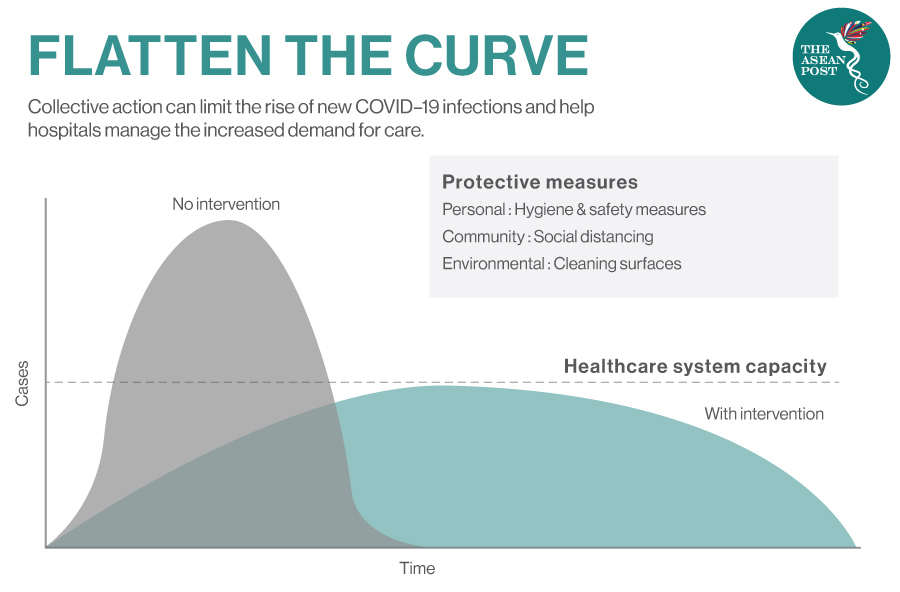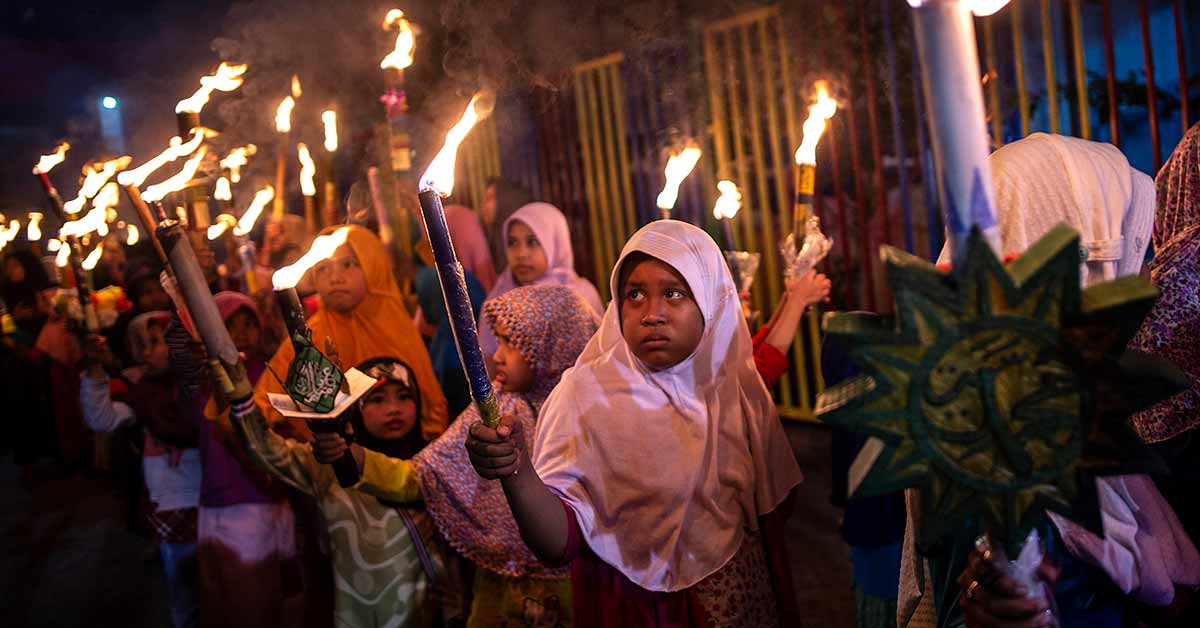The COVID-19 coronavirus pandemic, which first emerged in the city of Wuhan in China’s Hubei province, has unleashed chaos on the world. Many countries have imposed strict and drastic measures to contain the deadly virus, these include citywide lockdowns and extensive travel curbs. These measures have caused major disruptions to businesses and have severely impacted local industries and the global economy. According to the Asian Development Bank (ADB), the coronavirus pandemic could end up costing the global economy US$4.1 trillion or even more.
It’s not just livelihoods and the economy that have been hit, local traditions and celebrations are also affected as many are urged to stay home due to the pandemic. It is estimated that around three billion people worldwide are currently under lockdown.
The virus first appeared in China late last year as its citizens were preparing for the Lunar New Year celebrations in January. However, as the deadly virus rapidly spread across the country in early 2020, large-scale events associated with Lunar New Year celebrations such as traditional temple fairs were cancelled due to virus fears.
Recently, officials in China have told local media that the country’s central Hubei province has lifted some of the curbs after two months of strict lockdown. As China slowly heals from the COVID-19 virus, other nations across the globe are following China’s strategies in hopes of flattening the curve.

In the Muslim-majority ASEAN states of Indonesia and Malaysia, the topic of Ramadan and Eid-ul-Fitr celebrations has been widely debated as the Muslim holy month fast approaches. Ramadan, which is expected to start on 23 April and end on 23 May is a time of spiritual reflection and heightened devotion and worship. The 30-day fast begins at dawn and ends at sunset each day. The month-long fast is then followed by Eid-ul-Fitr, a religious holiday celebrating the end of Ramadan. In some countries, Eid-ul-Fitr is celebrated for two days. However, in Malaysia, Eid-ul-Fitr is a month of continuous festivities, which starts with a mudik or exodus where hundreds of thousands of people return to their respective hometowns across the country to celebrate the event with family and friends.
According to media reports at the time of writing, around 70,000 Indonesians could be infected with COVID-19 by the end of April. Hadi Susanto, a professor of Applied Mathematics at the University of Essex in England and the Khalifa University of Science and Technology in the United Arab Emirates, projected that the peak of the new coronavirus in Indonesia will happen around the month of Ramadan.
As of 5 April, 2,273 people have been infected with COVID-19 in Indonesia, with close to 200 fatalities. Nevertheless, observers believe that the number of infections could be higher than what is being officially reported.
Another religious practice performed during Ramadan is the tarawih prayers. Tarawih is an additional set of prayers that takes place every night during the fasting month and is typically carried out in mosques. To avoid a massive spread of COVID-19 – as seen from the Tablighi Jama’at event in Sri Petaling, a suburb in Kuala Lumpur, the capital city of Malaysia – an Indonesian Muslim organisation has issued a circular advising Muslims to perform the tarawih at home, according to local media.
The organisation, Muhammadiyah also advised that the Eid-ul-Fitr prayers, typically performed at mosques on the morning of the religious holiday, should not be held during the current crisis.
"If the COVID-19 situation remains (until the end of Ramadan), the string of events marking the Eid-ul-Fitr festivity shall not be organised, including the mudik (exodus),” according to the circular.
E-bazaars
Back in Malaysia, one of the biggest traditions that is much celebrated in conjunction with the fasting month in the country is its Ramadan bazaars. Ramadan bazaars are typically carried out nationwide with thousands of people visiting numerous stalls in bazaars to buy food and local delicacies to break their daily fast. Several states in Malaysia have announced recently the cancellation of such bazaars for this year’s Ramadan festivities.
Ramadan bazaars generally house items such as food for breaking fast and clothes for the Eid-ul-Fitri celebration.
It was reported that Malaysia which has enacted its partial lockdown, also known as the Movement Control Order (MCO), may continue to ban mass gatherings for the rest of the year even after the MCO ends on 14 April.
According to the Malaysian Association of Malay Hawkers and Small Businessmen (GPPPKMM) –which represents around 35,000 Ramadan bazaar traders in the country – many traders have already forked out tens of thousands of ringgits (the local currency) in preparation for business during Ramadan.
“This is a difficult year. Even if the movement control order (MCO) is lifted on 14 April, I don’t think the bazaars will materialise as there is a need to really make sure that there is no COVID-19 threat,” said Mohamed Zamri, secretary-general of the GPPPKMM to local media.
The association is also planning to develop an e-bazaar platform in order for traders to proceed with their Ramadan businesses online. Other than that, sellers have also utilised social media platforms as a proactive measure by creating open groups on Facebook for online Ramadan trading.
“We saw during the first phase of the MCO, the number of food deliveries has increased. This e-bazaar can be introduced as a means to avoid large gatherings of people,” said Dr Noor Hisham Abdullah, Malaysia’s Director General of Health.
It was reported that more than 100,000 bazaar traders in Malaysia will be affected due to the MCO that has been put in place to limit the spread of the COVID-19 virus as they will be unable to participate in the annual Ramadan bazaars.
Nevertheless, many observers agree that that cancellation of bazaars and ban on gatherings are very much needed to flatten the curve and break the chain of infection.
Related articles:
